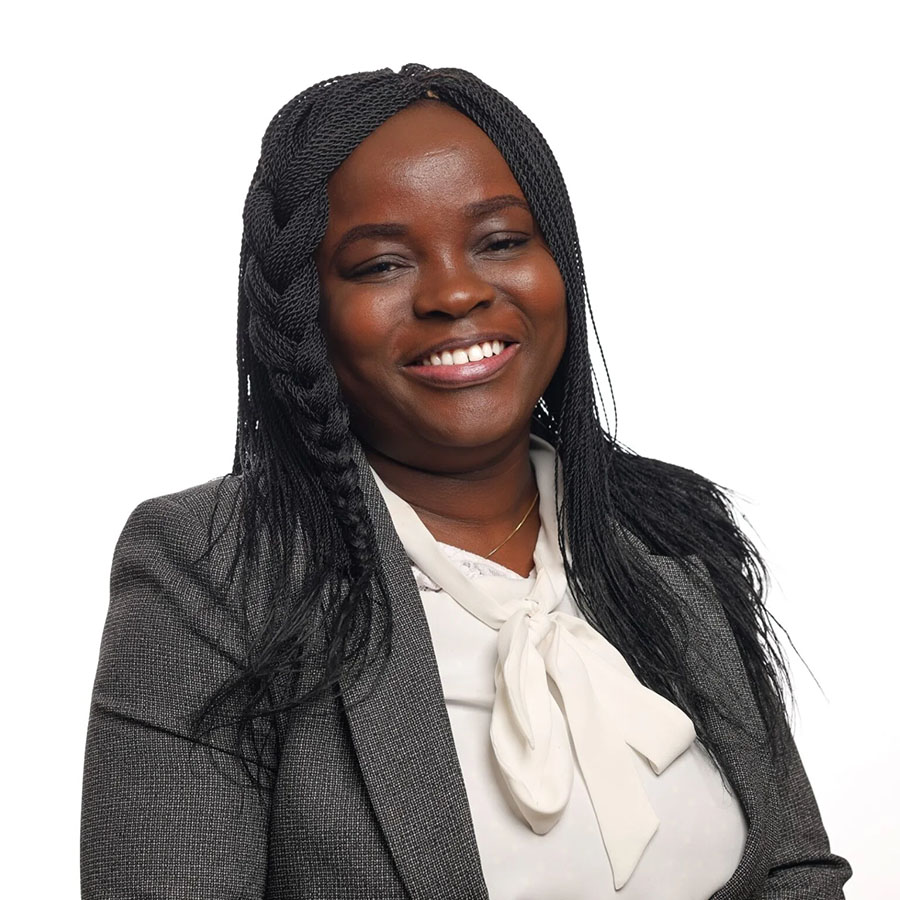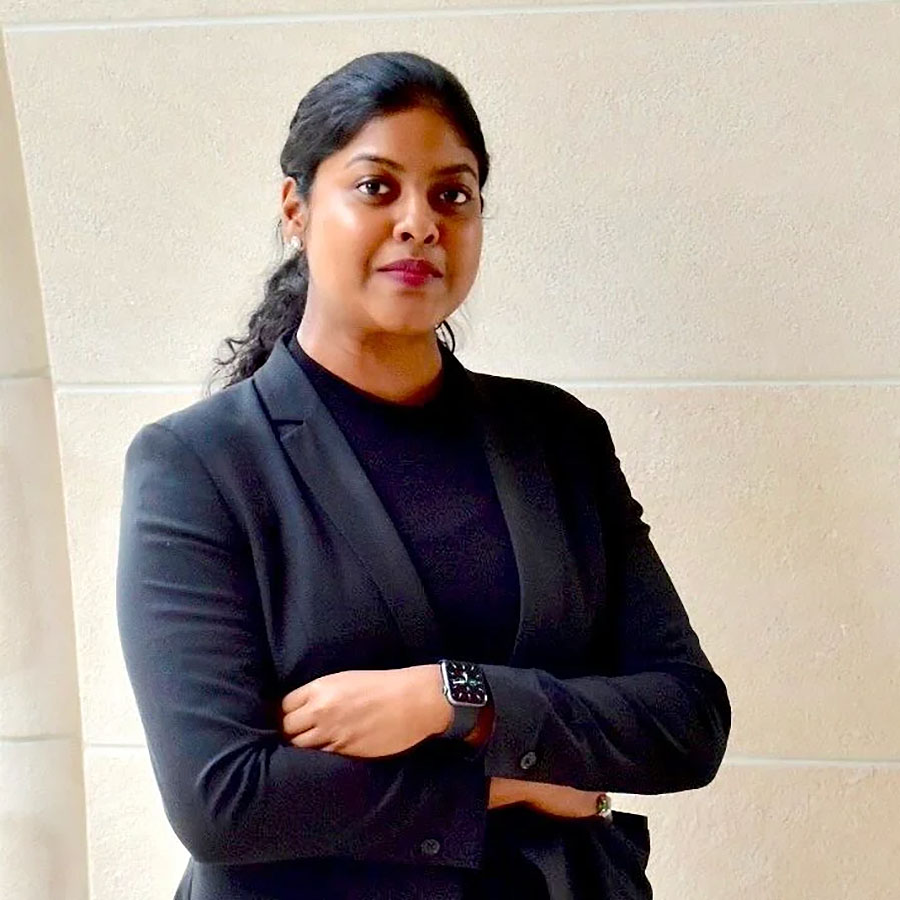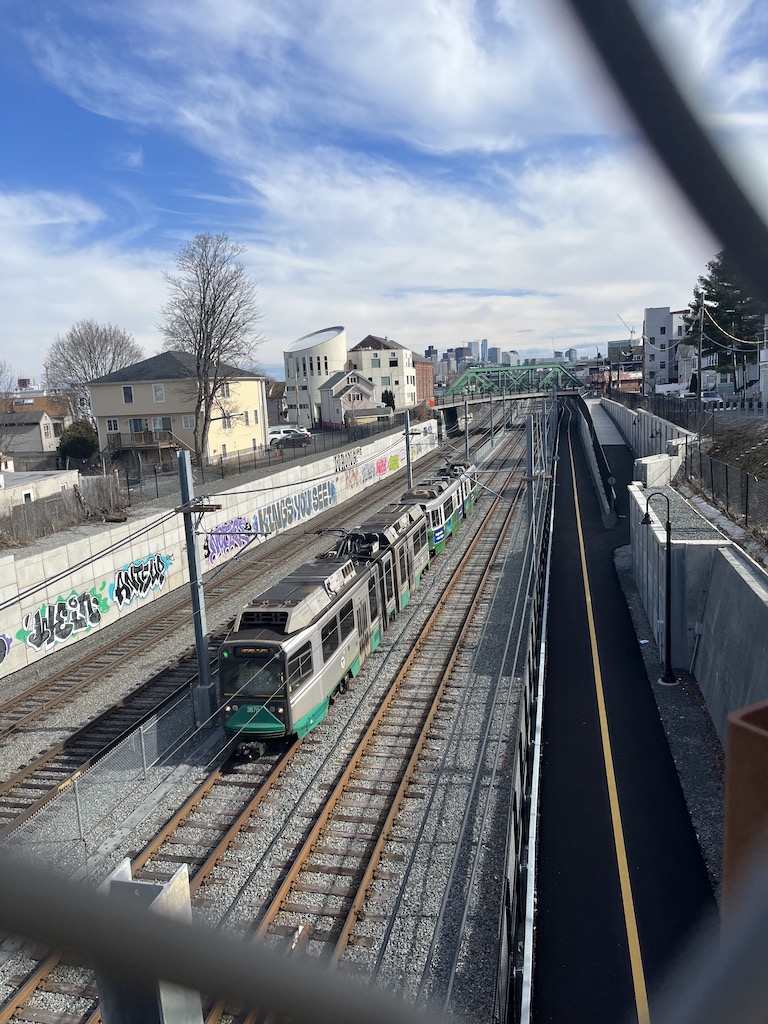by Valerie Gutmann ’23
 Part I: Context
Part I: Context
Living with roommates always necessitates some degree of negotiating boundaries. Even in non-pandemic times, roommates must decide norms around cleaning common spaces, communal versus individual use of food and cookware, and playing music. The COVID-19 pandemic added additional complexity, as it brought to the forefront many of the behaviors that roommates would traditionally not need to discuss. In the face of an infectious virus, roommates’ behaviors around indoor dining, in-person socializing, and hosting guests become key topics to communicate about, discuss, and ultimately negotiate.
I lived in the United Kingdom for two years immediately before law school, and on the day before my first year of law school started (at the beginning of September 2020), I moved from Cambridge, UK, to Cambridge, MA. All of our classes were being taught virtually. I moved into a two-person apartment with a roommate I had only met previously via a single video chat. My roommate was very welcoming and kind, but I nonetheless felt isolated. I quarantined for the first two weeks I was living in the new apartment, and after that I still felt uncomfortable socializing in groups. My risk tolerance for potential exposure to COVID-19 was lower than I had anticipated, and I soon found myself feeling homesick in a way that I hadn’t felt while living abroad. By mid-October of 2020, I booked a ticket back to Chicago, quarantined for two weeks in my grandmother’s guest bedroom, and retreated to the comfort of my family pod until the academic year was over in May of 2021.
In my first year section of ~70 people, roughly half of us were living somewhere other than Cambridge, MA, during virtual 1L (first year of law school). The other half of the section was living near the law school campus, but I didn’t have a sense of what that really meant on a day-to-day basis until we all returned to campus for in-person classes at the beginning of our second year of law school. As I talked with some of my sectionmates who had lived near the law school during our first year, I gained a new appreciation for how thoughtfully they had constructed guidelines and best practices that allowed them to feel connected with others and still safe. I was particularly interested in how sectionmates who lived in Cambridge, MA, last year with roommates navigated conversations around apartment and behavior norms, how these initial conversations connected to what actually happened, and what changes in behavior were agreed upon after the COVID-19 vaccines became available. It was this interest that led me to interview Connor, Mindy, Arielle, and Nicole, whose insights are the basis for the remainder of this blog post. Their names have been changed to protect their privacy.
Part II: Insights from four law students who lived with roommates in Cambridge during the 2020-2021 school year
Connor, Mindy, Arielle, and Nicole are all current 2Ls (second-year law students). They each lived in three-person apartments for virtual 1L, and they each identified ways that the decision to live with roommates during a pandemic necessitated clear communication about rules of behavior and shared expectations. Connor lived with two other law students, Mindy and Arielle are roommates who also lived with a third law student, and Nicole’s two roommates were not law students. In this section, I highlight excerpts from my interviews with Connor, Mindy, Arielle, and Nicole.
“Can’t wait to see you on Friday!”: Connor’s experience
Connor moved to Cambridge, MA, in early August of 2020. By that time, he had been living with his family for months and hadn’t seen anyone else except for brief interactions in the month before moving.
“I was taking the pandemic extremely seriously while living at home (outdoor socially distanced walks as my only form of in-personal social engagement outside of my family), and I knew that in law school I wanted to meet people. I was thoughtful about the boundaries, not just for myself but for others. Part of why I moved to Cambridge was to meet people and see them outside.” ~Connor
Connor participated in relatively large outdoor meet-ups with classmates during the fall, but he was also aware that the nice weather wouldn’t last and that arranging a pod of people he felt comfortable seeing in-person, unmasked, indoors was a priority for him. Someone told him, although he isn’t sure who, that a pod of six people was the maximum that would be safe, so he and one of his roommates formed a group with four other law students in their section.
“The six of us agreed to get tested once per week. The testing site was walking distance from where we each lived, and we would all text each other the results. It was like a ritual; we texted the negative results and said “Can’t wait to see you on Friday!” You weren’t allowed to see people outside of the pod indoors. Nobody in the pod was living with their families. We would quarantine (not hang out with the rest of the pod) for two weeks before going to visit family, which was mostly for their protection instead of ours. Our expectation was that if someone tested positive, we would all quarantine and await negative tests before seeing each other again.” ~Connor
Although the six-person pod was the core of Connor’s indoor social life, he continued to dine and socialize outdoors with other classmates and friends. His third roommate also saw a different set of people, and both Connor and one of his other roommates began to date new partners during the pandemic. Each of their partners had their own pods, and each pod had slightly different rules. Sometimes the pods would gather together outdoors, but they didn’t spend time indoors all together until after people had been vaccinated in spring of 2021.
By the time that everyone in the pod had been fully vaccinated, classes had ended for the academic year, and Connor had started socializing more broadly. In August of 2021, Connor was notified by Harvard University contact tracers that someone he was in contact with had tested positive for COVID-19. He tested positive shortly afterward. Connor quarantined carefully, and neither of his roommates ended up testing positive.
Connor is still living with the same roommates, and they have decided to stay in their apartment through the end of law school. Their clear communication during the pandemic was part of the reason that they all felt comfortable signing a two-year lease to continue living together. Reflecting on the experience of living in Cambridge last year, Connor told me how different things feel now that we have resumed in-person classes.
“This year, it’s so nice to feel so much community again. I feel grateful that I was able to form a pod and see people last year, but you miss casually running into people when you’re in your house. It reminded me of finals, but for the whole year. You’re just focused on being inside. I have so much less concern about COVID now. The vaccine has really made it possible to have a section meetup, even though it’s outdoors; it just lowers the risk significantly. Still, before I go home, I always get a COVID test and try not to see people for around seven days beforehand. The risk for my parents is very different from the risk for my friends.” ~Connor
A roommate summit: Mindy and Arielle’s experience
Mindy, Arielle, and their third roommate are all law students, and they met through a spreadsheet that had been circulated in a GroupMe for incoming Harvard Law School students moving to Cambridge. The three then-potential roommates scheduled a Zoom call to talk about their preferences in an apartment, including their approach to COVID-19 precautions. All three of them agreed generally that they wanted to be careful but also wanted to develop a pod of friends. By the end of the Zoom call, they had decided to become roommates, friends, and podmates. The real work of developing a pod came later, though, when they were considering who to add to their three-person group.
“We all decided we were fine hanging out with people outdoors, so we went to some of the section-wide meetups, but we were kind of stressfully looking to form a pod with whom we would be comfortable indoors without masks, because this was pre-vaccine, and we were thought ‘if we don’t nab people to be in a pod, we’ll miss out.’ We wanted to be able to socialize with them indoors and only with them (although their roommates had different pods, which was a bit of a gap). We wanted to have a small pod of people we could feel safe around. We invited a few people over for Halloween and a movie night to see what it would be like to hang out with them in a group. It was very much like beginning dating somebody and having a conversation about exclusivity. You don’t want to form a pod with somebody who is hanging out with others.” ~Mindy
“Socializing is important for law school, because you’re building a network and making connections. To balance being safe and also making friends, we decided to develop a pod, so that if we had a COVID exposure we would at least be able to contain it within the group. I wasn’t worried about getting COVID, being a healthy 20-something adult, but I was worried about spreading it to other people.” ~Arielle
In the end, Mindy, Arielle, and their third roommate selected two more pod members, each of whom were also law students. The other pod members each lived with one other person who was not in the pod. Reflecting on the social dynamics, Mindy shared that having even two guests helped to create a sense of normalcy that would otherwise have been missing from a year of living through a pandemic.
“Once the weather got cold, we hung out mostly with just the pod. I would have liked to be able to socialize with more people, but 1L was busy, so I think I would have been partially limited in hanging out with people anyway. We would decorate for and throw a party for pretty much every holiday, and we would make collaborative Spotify playlists and holiday-specific or themed food and drinks for the parties. We did that for two [guests] in the same way that we would have for a larger group. We felt safe that way.” ~Mindy
Unlike Connor’s pod, Mindy and Arielle’s pod did not do regular COVID-19 testing in the fall. The testing sites were relatively far from their apartment, and some of the testing options cost money that they felt unable to spend. Instead, they got tested only if they thought they had been exposed or if they had symptoms such as a sore throat. In the spring, though, they decided to participate in a study run through Harvard.
“During the spring semester Harvard was doing a study where they compared the COVID tests that they were using for the undergrads at the time and a new form of COVID test that was more efficient (the plastic ones). We talked about the study in our pod group chat, and it seemed like a good way to get free tests every week and help the university do better with its COVID testing. All of us in the pod agreed to sign up, although it wasn’t a requirement. It felt like a small sense of safety, that we were getting tested so often.” ~Mindy
Despite the sense of safety that came with testing more often, in the spring one of the non-roommate pod members was exposed to COVID-19, and the entire pod quarantined. That was the only time that Mindy, Arielle, and their roommate wore masks around each other in the common spaces of their apartment. Mindy and Arielle’s roommate was actually home visiting family at the time, and they suggested that she stay with family for a few days until they could all get a negative COVID-19 test.
The other significant decision that Mindy and Arielle had to make with their roommate was around dating.
“Two of the roommates had long-distance [partners], and one was single. The roommate who was single was on dating apps and wanted to bring somebody to the apartment. She texted and asked if it was okay, and I said ‘Let’s talk in person, because things can get lost over text.’ We decided to have a Roommate Summit. We didn’t want a new person to come over every week. That didn’t end up happening, but we organized the meeting to discuss it because we wanted to make it clear upfront that we didn’t want new people over to the apartment all the time.” ~Mindy
Once all five of the pod members had been vaccinated, Mindy and Arielle started seeing more people and inviting new friends over to their apartment over the summer. They had been indoor dining in June, but once things got worse again in July with the Delta variant, they stopped indoor dining again. Arielle left for the summer and considered subletting her spot in the apartment, but she ultimately decided against it. She worried that a subletter wouldn’t comply with COVID-19 precautions carefully enough, because they wouldn’t have the same investment in maintaining ties with the roommates. Reflecting on the experience as a whole, Arielle commented on how well things had gone.
“[All three of us roommates] were all very open and approached things on the same page. When you’re talking to new people, you don’t know if they’re going to have the same standards as you are when it comes to pandemic safety, but it seemed to shake out pretty well. We had similar ideas about how to be safe.” ~Arielle
“I was desperate to fill the rooms”: Nicole’s experience
Unlike Connor, Mindy, and Arielle, Nicole did not live with other law students while in Cambridge for virtual 1L. She had worked for a few years before coming to law school, and she was on the fence about moving to Cambridge. She ultimately decided to move up with a friend who was starting a PhD in Cambridge at the same time, and they signed a lease together. When he learned that school would be virtual and decided not to move, Nicole still felt that she was on the spot for the rent payments, and she started posting in various Facebook groups looking for other roommates. Reflecting on that experience, Nicole commented on how COVID-19 played a role in her roommate search.
“During my initial conversations with my friend who I originally signed the lease with, we didn’t talk about COVID-19 all that much. We had so many mutual friends, so it felt like I knew his thoughts on the topic without having to talk about it explicitly. When I was conducting the search for other roommates, I would ask about how they were approaching COVID-19. What my roommates and I ultimately agreed to was that we wouldn’t have people over to the apartment itself, because it was warm enough outside, but we decided that as the winter got colder each person could have one person inside. We also had a porch we were comfortable inviting people over to. You could fit six or seven people on it comfortably. None of us were dating anyone at the time, so that wasn’t something that we talked about.” ~Nicole
Nicole was the only student in the apartment; the other two roommates had full-time jobs that were mostly remote. Reflecting on their early days of living together, Nicole did not remember agreeing to a specific testing schedule.
“We didn’t have any conversations about doing regular COVID tests. [One of my roommates had a job that required him to be in-person occasionally], so he bought a bunch of at-home COVID tests that he would use before and after each [in-person work commitment]. The understanding was that they were negative unless he said otherwise.
I saw my mom a few times and would tell my roommates that I was going on a trip and would get tested before, and my mom would also get tested before. I was driving to visit my mom, not flying. My primary concern was for my mom’s health and then for my roommates’ peace of mind. I wasn’t really worried that I would get COVID from my mom and give it to them, because my mom lives in a small area and COVID wasn’t as prevalent there, but it was more of a courtesy thing. If it was just me living alone, I wouldn’t have felt as strongly about getting tested before visiting my mom.” ~Nicole
Of Nicole’s two roommates, she got along better with one of them than with the other one. She commented that in hindsight this was not a surprise, because she had hesitations from the beginning about the roommate with whom she ended up being less compatible.
“I was in a relatively weak bargaining spot back when I was looking to find roommates over the summer, just because of the supply and demand of housing at that time. There were far more rooms needing to be filled than people in the area looking to fill them, because many of the students had decided against moving to Cambridge. I was desperate to fill the rooms so that we could split the rent among three people instead of having it all be my responsibility. I knew when I picked one of the roommates that I wasn’t thrilled with her overall as a match and personality fit, but I also didn’t really have any other options.” ~Nicole
The roommate in question was generally polite, but she sometimes invited guests over to the apartment without warning Nicole and ate unmasked and indoors at coffee shops before any of the roommates had been vaccinated. A few months into the fall, this roommate was facing visa problems and ended up moving out of the apartment. She stopped paying rent as soon as she left, leaving Nicole and the other roommate with significantly higher monthly rent expenses than they had anticipated. By the end of fall semester, Nicole realized that she would be happier and feel more settled if she left Cambridge and returned to the city she had been living in for a few years before law school. She and the other remaining roommate thought it would be easier to find someone to take over their lease if the entire apartment was available, so they posted it on a variety of Facebook groups. The day before Nicole’s last fall semester final, she found a group of people who wanted to take over the apartment lease. The next day, she took her last final, packed up her entire apartment, and moved out. She didn’t return to Cambridge until nine months later, for the beginning of the current academic year.
Part III: Analysis and reflection
While Connor, Mindy, Arielle, and Nicole all have in common the fact that they chose to move to Cambridge during the pandemic and were conscientious about limiting potential exposure to COVID-19, there are elements of their experiences that differed significantly. For example, the ways that Connor, Mindy, Arielle, and Nicole came to live with their roommates is indicative of the differing levels of trust that already existed coming into a conversation about COVID-19 precautions at the beginning of last school year. Connor was already friends with one of his roommates, and they were able to have a precise and specific conversation upfront about what kind of testing schedule and pod environment they found acceptable. Mindy, Arielle, and their third roommate were strangers, but strangers that had a lot in common; they were all similar in age and taking the exact same set of classes with the exact same professors. They had general conversations early on about COVID-19 precautions, but nothing like the level of specificity that Connor and his roommates had discussed before moving in together. Nicole had the least specific conversations around COVID-19 with her roommates before agreeing to live with them, as her intended roommate decided to not to move to Cambridge and the roommates she ended up living with were strangers with whom she had little in common. Nicole perceived herself as having a weak bargaining position because of the surplus of available apartments in Cambridge at that time, and this perception led her to portray her comfort level with COVID-19 as slightly more flexible than she actually preferred it to be. For example, she communicated with potential roommates that she wanted to limit the number of people coming into the apartment but did not reveal that having a roommate who was indoor dining would feel unsettling to her.
Despite these differences, Connor, Mindy, Arielle, and Nicole all aligned in their preference for clearly expressed rules and expectations. The people in Connor’s pod knew how long they were expected to quarantine before seeing their parents, when to send their COVID-19 test results to the group chat to express excitement for upcoming weekend plans, and how many negative tests they needed before they could resume hanging out indoors with the pod members after traveling outside of Cambridge. Mindy and Arielle knew where to go get tested if they felt COVID-19 symptoms, how long to quarantine before visiting family, and how many indoor guests were acceptable. Nicole knew how many people were permitted on the outside porch, how many people they had agreed would be allowed inside the apartment during the winter, and what the expected testing regime was for visits to family. The clarity of the expectations for each roommate helped to establish defined boundaries that brought with them a sense of psychological safety—or at least as much psychological safety as can be gleaned in the midst of a pandemic.
What started to test these boundaries is what happened when things didn’t go as planned. For Connor, the unexpected incident was him contracting COVID-19 in August but being completely asymptomatic. For Mindy and Arielle, the unexpected events were the potential COVID-19 exposure through the pod member’s roommate as well as how to balance a desire for an indoor apartment space that was not shared with people outside of the pod with a desire by one of the roommates to date new people. For Nicole, the unexpected event was one roommate’s unwillingness to give up indoor dining and that roommate’s subsequent disappearance from the apartment—without paying her expected share of the rent. These challenges and the informal negotiations of new guidelines (which happened shortly after each unexpected situation arose) reveal the ways in which the conversations among roommates were not closed negotiations. Instead of negotiating just once and being able to anticipate all potential questions, the roommates had to continually be responsive to new information and adapt to new circumstances. Their established guidelines seemed comprehensive until a new situation arose, and each time that happened the roommates needed to come to a new agreement about how to proceed.
Overall, clear communication and an understanding that there was going to be some agreed upon level of risk helped lead to negotiation outcomes that felt acceptable for all of the parties (in this case roommates) involved. There were very few moments of true conflict—a testament to the ways that the roommates strove to interpret each other’s actions charitably and discuss things as they arose.
Part IV: Continuing to negotiate boundaries around pandemic behavior during the 2021-2022 academic year
This academic year, I am back in Cambridge and living in an apartment with a roommate. My roommate is a close friend who is also a second year student at Harvard Law School. We discussed COVID-19 precautions briefly at the beginning of the year but continue to revisit small details of our respective comfort levels as information emerges about new variants and COVID-19 positivity rates within the university and the law school in particular.
While my roommate and I currently have no existing limits on who or how many people we can invite to the apartment, where we can travel, or how many friends we can invite to stay with us overnight, I am conscious that we may need to negotiate limits if one of our COVID-19 comfort levels shifts. In that situation, I am grateful that our existing friendship makes it likely that we would be able to follow Connor, Mindy, Arielle, and Nicole’s model of clear communication in order to set new guidelines. This willingness to adjust as needed, paired with regular testing and a mask mandate inside university buildings and on public transit, has created something close to a sense of normalcy. Or if not normalcy, at least something that resembles it closely enough that it feels possible to focus on learning and growing in the midst of a moment that is marked by negotiation among roommates across the Harvard Law School campus—and beyond.








